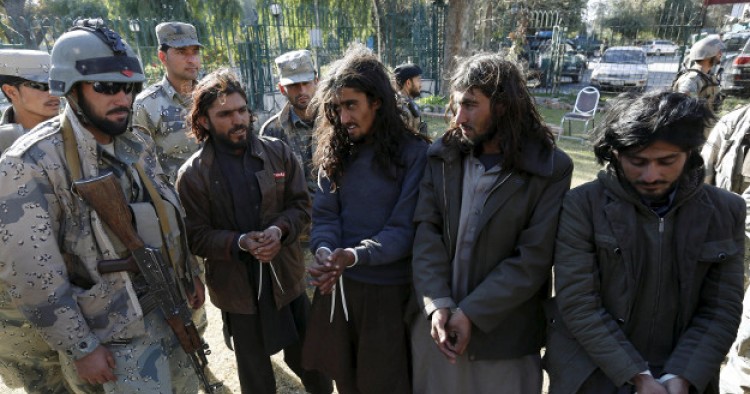Abdul Jabar Qahraman, who recently resigned as the top official overseeing war efforts in Afghanistan’s volatile Helmand Province, has said that Iran facilitates contacts between Taliban leaders and Russian officials. In an interview with Voice of America TV (Dari Service), the former Afghan army general said he had credible intelligence that Taliban representatives from Helmand, Farah, Nimroz and Herat Provinces have traveled to Moscow via Tehran. He claimed that family members of Taliban leaders traveling to Iran have confirmed their meetings with Iranian and Russian officials. Qahraman was Afghan President Ashraf Ghani’s special representative to southern Helmand Province.
Comment: Afghan and U.S. officials have repeatedly said in recent months that Iran and Russia have teamed up to undermine the U.S.-led stabilization efforts in Afghanistan. Local officials in southern and western Afghanistan cite intelligence that shows Iran is increasingly sheltering, training, funding and arming Taliban insurgents. They claim that the two countries have not only expanded their diplomatic engagement with the Taliban leadership, but are also providing advanced weapons to the insurgents that are fighting the Afghan government and the U.S.-led coalition forces in the country. “We have received [intelligence] reports that Iran has obtained some weapons from Russia and delivered them to the Taliban. We cannot confirm it 100 percent. But intelligence reports show that the Taliban receive training inside Iran,” Afghanistan’s Ariana News quoted Gulbahar Mujahid, the chief security commander of Farah Province, in a report published on March 23.
Iran has also reportedly set up new training camps for Taliban fighters along Afghanistan’s border and has delivered Russian arms to the insurgents in western and southern Afghan provinces. “We have received intelligence reports that training camps have been established in Iran’s Naibandan area [in Khorasan], and they provide military training to the Taliban. Indeed, Russia, with Iran’s assistance, is equipping the Taliban with advanced weapons,” Farah’s Deputy Governor Muhammad Younis Rasooli said in March.
Not all Iranian subversive activities are confined to western Afghanistan, however. Two months ago, Afghan authorities alleged that Iran had sent a delegation to meet with Taliban commanders in the restive province of Helmand. On January 23, Hayatullah Hayat, the governor of Helmand, told Afghanistan’s 1TV channel that the National Directorate of Security was investigating allegations that the Iranian team also delivered weapons to Taliban militants in Helmand’s Garmsir District. The timing of these reports is important as the Taliban have made significant territorial gains in Helmand Province in recent months. The insurgents yesterday captured Helmand Sangin District, a strategic area where more American and British troops have been killed than in any other of Afghanistan’s nearly 400 districts.
Both Iran and Russia have also broadened their diplomatic engagement with the Taliban leadership. Iran has hosted several Taliban delegations for talks and conferences in recent years; and in 2014, the Iranian government “formalized” its relationship with the Taliban by allowing the terrorist group to open an office in Mashhad, the capital of Iran’s Khorasan-e Razavi Province. When a U.S. drone killed Taliban leader Mullah Mansur in Pakistan last year, he was returning from a trip to Iran.
Moscow, too, has cultivated close relations with the Taliban leadership – raising concern in Kabul that regional governments are directly engaging the Taliban for their own interests at the expense of Afghanistan’s stability. The Trump administration declined Russia’s invitation to attend a meeting with the Taliban leaders in Moscow on April 14.
The Middle East Institute (MEI) is an independent, non-partisan, non-for-profit, educational organization. It does not engage in advocacy and its scholars’ opinions are their own. MEI welcomes financial donations, but retains sole editorial control over its work and its publications reflect only the authors’ views. For a listing of MEI donors, please click here.













